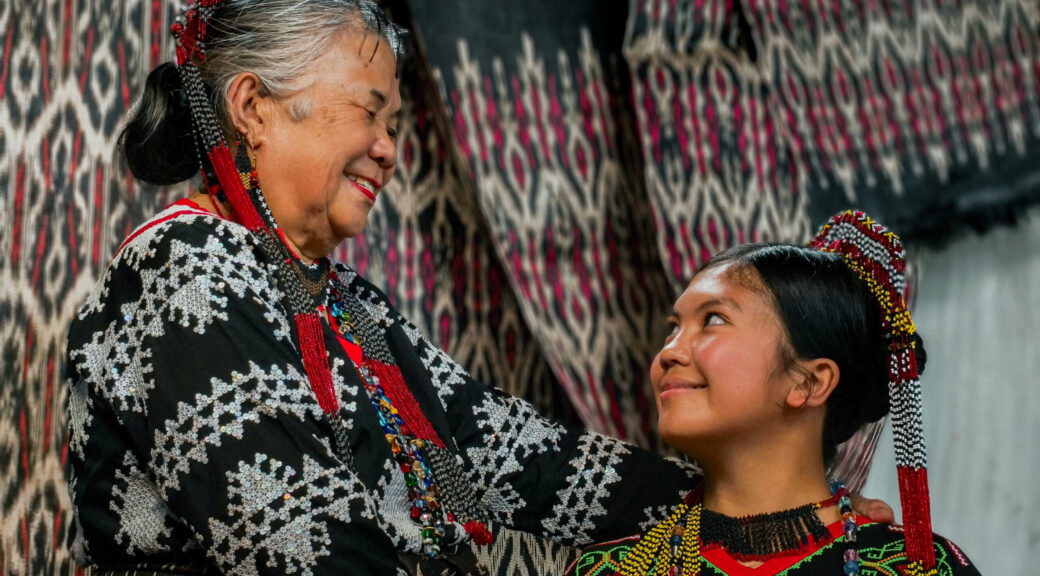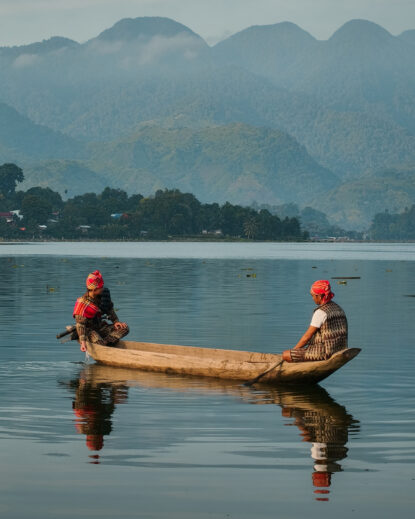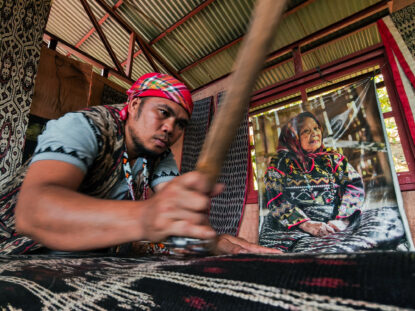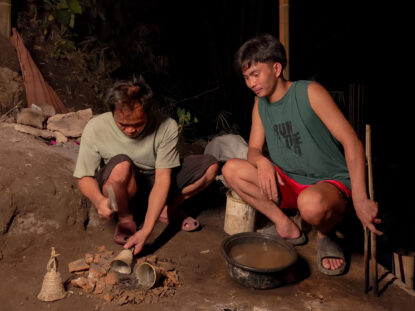Weaving the Tboli’s Living Heritage
OPPO and Discovery Partner with the Department of Tourism of the Philippines to Celebrate the Cultural Legacy of the Tboli People
OPPO and Discovery have partnered with the Department of Tourism of the Philippines to explore the rich cultural heritage of the Tboli people in the Lake Sebu region. As part of the Culture in a Shot initiative—launched in 2024 to celebrate cultural diversity around the world—the initiative continues its global journey under the 2025 theme Celebrate the Moment. After visiting 15 countries and regions, this global cultural journey now turns its lens to the forests and indigenous communities of the Philippines. Through the lens of the OPPO Reno14 Series, this chapter offers a rare glimpse into the Tboli people’s artistry, traditions, and everyday moments—shedding light on a living culture deeply rooted in creativity and ancestral pride.
Nestled in South Cotabato, Lake Sebu is framed by green hills and mist-covered mountains. Rooted in the coexistence of nature and heritage, it is a place for discovery and exploration. This is the home of the Tboli, known for their hospitable, warm, peace-loving spirit and the intricate artistry they have practised for generations.


Tnalak: The sacred art of dreamweaving
Weaving is central to Tboli culture — a means of livelihood and an expression of identity. Each design reflects centuries of knowledge, from the preparation of abaca fibres to the symbolism in every pattern.

Among the Tboli, the most revered artisans are Dreamweavers — women believed to receive patterns in dreams from Fu Dalu, the spirit of the abaca plant. These patterns are woven entirely from memory into Tnalak, a sacred cloth made from abaca and dyed using the intricate mebed process.
The presence of Fu Dalu is not bound to dreams alone. The Tboli believe the spirit also guides them in waking life, giving them the physical and mental strength to endure the demanding art of Tnalak weaving.


One of the most celebrated Dreamweavers was the late Lang Dulay, recognised as a National Living Treasure of the Philippines. She created more than 100 dream-inspired patterns — from bulinglangit (clouds) to kabangi (butterflies) — and founded the Manlilikha ng Bayan Center to pass on the tradition.
Today, her daughter-in-law Sebulan Dulay, now 80, celebrates that legacy. While she does not dream the patterns herself, she was taught directly by Lang Dulay. Sebulan teaches young weavers in her community, along with the rituals and meanings behind each motif.
She remains committed to preserving the integrity of Tnalak, never mechanising the process. “Now, designs are often printed on, because many no longer know how to weave with abaca,” she explains. “But the 32 steps should not be forgotten — it’s a part of Tboli tradition that should never be lost.”


Temwel: The unique skill of brass casting
Alongside weaving, brass casting is another craft deeply tied to Tboli heritage. Artisans transform upcycled brass and other metal scraps into intricate ornaments, with symbols inspired by nature and community life: Fern leaves for forests, zigzag lines for mountains, and small circles for the gongs that call the village to gather.
The process is painstaking. Wax is rolled and shaped, coated in clay to make a mould, then fired to melt the wax. Molten brass is poured into the mould, cooled, and polished by hand — often taking several days.

For Jefferson “Moy Moy” Lam Blunto, 22, brass casting is a family legacy and a pathway to opportunity. “Brass casting has helped me and my siblings go to school, and it’s given us travel opportunities too,” he says. “We are proud to show the world that we are Tboli, and these are our unique skills.”
Sesotunawa: The spirit of working together
At the heart of Temwel today is Sesotunawa, a Tboli-owned enterprise co-founded by Moy Moy’s father, Joel Blunto, a fourth-generation brass caster.
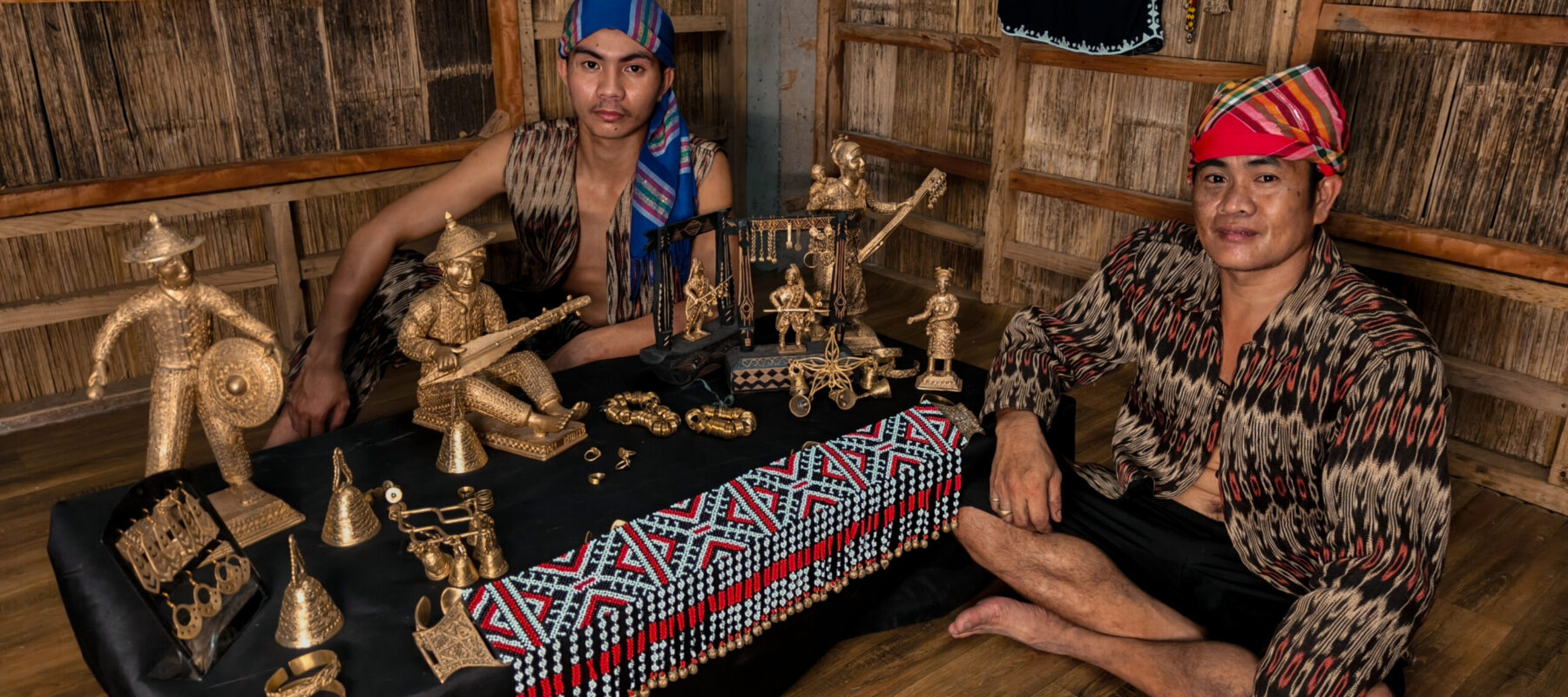
The name comes from the Tboli words sesotu (“to make one”) and nawa (“spirit”), reflecting a community ethos of compassion, unity, and cultural pride.
What began as a family’s livelihood has grown into an artisan community of eleven brass casters and eight beaders. Sesotunawa’s mission is to engage more communities and inspire future generations to rekindle their love for their art, culture, and identity.
For Joel, preserving the craft is only part of the work — ensuring fair recognition and compensation for artisans is just as important:
“Too often, middlemen buy our work at a low price and sell it for much more. We want our community to be recognised as the true owners of this craft.”
Every craft is a celebration of Tboli tradition

In Lake Sebu, every Tboli craft is more than a work of art — it is a piece of living heritage. Each piece invites discovery and sparks exploration, offering a glimpse into the Tboli’s stories, spirit, and way of life.
Through the lens of OPPO, “Celebrate the Moment” unveils more than tradition—it reveals the enduring humanity and pride that keep culture alive. In the heart of the Tboli community, heritage is woven into cloth, cast into brass, and passed down through movement and memory. While tools and times evolve, the Tboli spirit remains timeless. Empowered by OPPO’s cutting-edge Ultra-Clear Low-Light Camera System, both the Reno14 Pro 5G and the standard Reno14 feature with flagship 50MP 3.5x telephoto camera, offering a versatile shooting experience for these intimate stories in striking clarity. From intricate fabric textures to expressive portraits, every frame becomes a tribute to the legacy that lives on.
